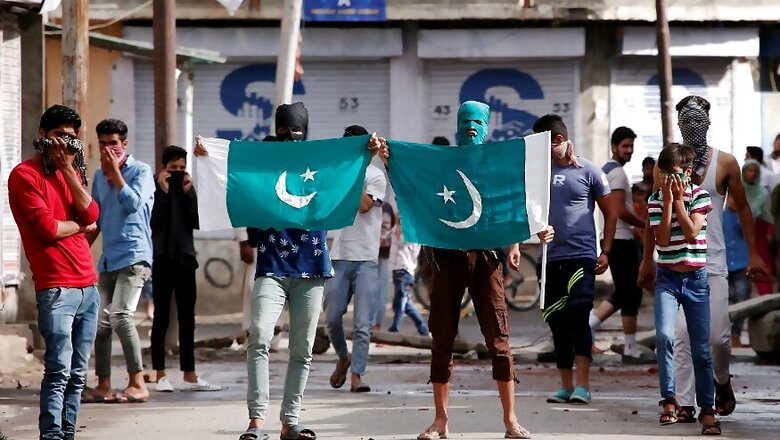
views
New Delhi: In what is believed to be the first such confession to emerge from Pakistan, the country’s former spy chief Mohammad Asad Durrani has admitted that the Hurriyat was the creation of the Inter-Services Intelligence (ISI).
Durrani, who served as the ISI chief from 1990-1992, the years when the armed separatist violence broke out in Kashmir for the first time on a mass scale, said, “I think that the formation of the Hurriyat to provide a political direction to the resistance was a good idea.”
But what he didn't consider a good idea was “giving up handle on the movement — letting the factions do what they bloody well wanted to…”
The statement is part the conversation between Durrani and former RAW chief AS Dulat, which has been moderated by journalist Aditya Sinha in a book titled The Spy Chronicles: RAW, ISI and the Illusion of Peace. In the book, Durrani is quoted at length discussing Kashmir, Hurriyat, Afghanistan, Osama Bin Laden, Pervez Musharraf, Ajit Doval, AB Vajpayee, the Agra Summit and Narendra Modi with Dulat.
Incidentally, Dulat was serving as the joint director of the Intelligence Bureau in Kashmir in 1990 when Durrani was heading the ISI.
In the book, Durrani has talked about ISI’s role in the formation of the Hurriyat and its support to the early days of Kashmiri separatism in response to questions about the big failure of ISI against India.
In his reply, Durrani said, “The biggest failure was when the Kashmir uprising happened, we did not know how far it would go.”
“These things usually run their course in six months or a year. When it became lasting, we wondered how to keep a handle on it. We didn’t want it to go out of control, which would lead to war which neither side wanted,” he added.
Durrani went on to say that he met Amanullah Gilgiti, a resident of Kashmir’s Kupwara district who went on to help found the first local armed separatist outfit of Kashmir, the Jammu and Kashmir Liberation Front (JKLF).
“I regret till today why we did not take Amanullah Gilgiti more seriously. His group led the uprising…. His third option of independence was unnecessarily muddying the water. And what did independence mean anyway?”
Durrani added that the formation of the Hurriyat provided direction to the “resistance”. “But going back to Kashmir uprising of the 1990s, I think the formation of the Hurriyat to provide a political direction to the resistance was a good idea. Giving up handle on the movement — letting the factions do what they blood well wanted to — was not.”
The ex-ISI chief may have implied that Pakistan did not remain in touch with Hurriyat and other separatist factions in Kashmir, but several reports have documented the active role that Islamabad played in arming and supporting the youth of Kashmir in the early days of militancy. Several of the early militants of Kashmir, including Gilgiti, and later Syed Salahuddin and Hafiz Saeed, continued to thrive in Pakistan.
The book also quoted former RAW chief Dulat as saying that Pakistan was getting interested in Kashmir again. “… it’s now ‘game-on’ again in the last three years because of the uncertainty that we’ve created. The status quo mess we create gets Pakistan interested again.”
In another section of the book, Dulat says, “The Hurriyat is the Pakistani team.... India has its team, Pakistan has its team, and the Kashmiris are in between.”
In an interview to The Wire, Dulat stated that Pakistan has again become a player in fomenting unrest in Kashmir.




















Comments
0 comment